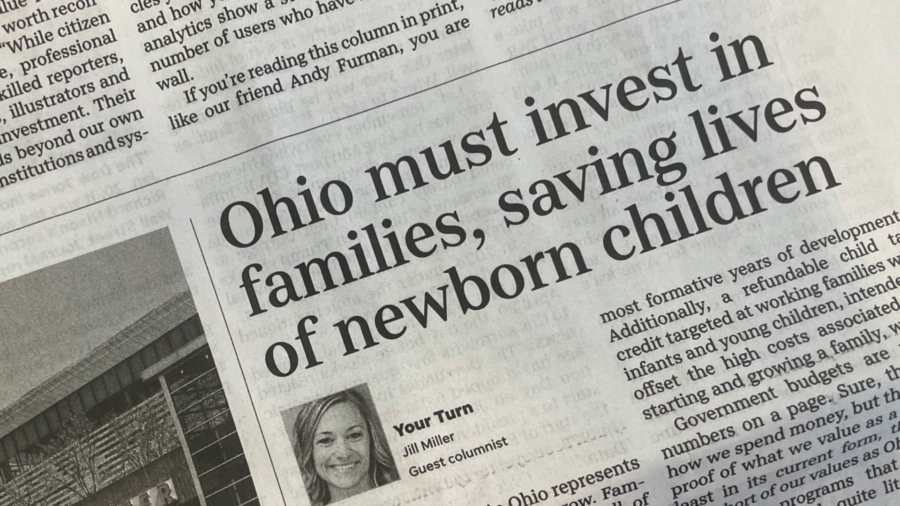The Cincinnati Enquirer recently published the following opinion piece by bi3 Fund President & CEO Jill Miller.
Every baby born in Ohio represents a promise of a better tomorrow. Families have hopes and dreams full of potential for all that their child will succeed. However, for too many, that promise is broken before it even has a chance to begin.
Our state’s infant mortality rate isn’t just a statistic. The death of each baby is a heartbreaking story of profound loss, a future cut short, and a family left to grieve.
Even with significant progress, Ohio’s infant mortality rate continues to exceed the national average and rank among the worst in the U.S., with Ohio families facing devastating disparities. Preliminary numbers from the Ohio Department of Children and Youth put the state’s infant mortality rate at 6.5 per 1,000 live births for 2024—the first statistically significant drop in years.
Yet, the current state budget cuts funding that our Governor proposed to expand the very programs that helped save Ohio children’s lives.
As someone who leads a philanthropic organization committed to improving maternal and infant health, I’ve had the privilege to witness firsthand the life-changing impact of programs like Family Connects, which is designed to serve any Ohio family with a newborn that could benefit from a visit with a registered nurse. Programs like these support families during vulnerable times, offering everything from lactation help to postpartum depression screenings. Their measurable impact includes reducing unnecessary ER visits, increasing maternal mental health, strengthening parent-child bonds, and most importantly, saving lives.
That’s why I was deeply discouraged to see the current budget cuts funding for these proven, evidence-based solutions in its version of the state budget. Also eliminated was continuous Medicaid coverage for babies from birth through age three, a policy designed to ensure our youngest and most vulnerable children continue to get healthcare during the most formative years of development. Additionally, a refundable child tax credit targeted at working families with infants and young children, intended to offset the high costs associated with starting and growing a family, was cut.
Government budgets are not just numbers on a page. Sure, they tell us how we spend money, but they are also proof of what we value as a society. At least in its current form, this budget falls short of our values as Ohioans, de-prioritizing programs that put Ohio families first and, quite literally, keep babies alive.
We know what works. We’ve seen it right here in Greater Cincinnati. Hamilton County has experienced a historic 30% decline in infant mortality in just the last two years. What’s driving that progress? Coordinated community investments, innovative partnerships, and expanded access to care. Cutting funding now threatens to halt that momentum.
What’s at stake
Investments in maternal and infant health pay off for decades. Children with healthy starts are more likely to succeed in school, contribute to the workforce, and lead productive lives. Conversely, the costs of untreated postpartum depression, delayed child development, and chronic illness are steep for families, communities, and taxpayers.
The good news is that we still have time to get this right. The Ohio Senate has the opportunity to restore these critical investments and send a clear message that the lives of mothers and babies matter.
Let’s be clear. This isn’t about political optics or partisan debates. It’s about valuing our state’s families and saving the lives of Ohio babies.
What you can do
We know what works. Now we need to fund it.
Urge the Ohio Senate to restore these programs and support the next generation of Ohioans, starting from day one.

Jill Miller is President and CEO of the bi3 Fund, which has awarded more than $105 million in grants to fuel health equity and innovation. She is also the co-author of the book Infant Mortality and Other Wicked Problems.




